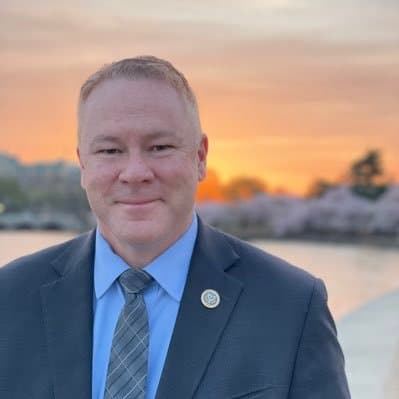Lawmakers Juggle Climate Change Hazards Against Housing and Insurance Costs

WASHINGTON — Climate change again became an impassioned topic during a congressional hearing Friday as lawmakers struggled to figure out who will pay for the costs floods, droughts, hurricanes and wildfires impose on consumers.
“It’s clear losses are getting larger and more frequent,” said Rep. Warren Davidson, R-Ohio, who chairs the House Financial Services Subcommittee on Housing and Insurance.
Environmentalists have responded by demanding more ESG investment, either voluntarily or through regulation.
ESG refers to an investment strategy that considers environmental, social and governance issues when deciding which companies to invest in or policies to pursue.
A pre-hearing memorandum from the subcommittee suggested that government regulators have gone too far in their demands to protect the environment.
“Regulators are using ESG to force businesses into different capital allocation choices at the expense of their fiduciary duties to shareholders, customers, and employees,” the memo says.
Although well-intentioned, ESG also drives up costs of housing and insurance, often making it difficult for low-income persons to find an affordable place to live, according to witnesses at the hearing Friday.
“This has resulted in very poor conditions for some tenants,” said Caroline Nagy, a policy counsel representing the nonprofit advocacy group Americans for Financial Reform.
She estimated 7 million more affordable homes are needed for low-income persons.
Examples of rising costs mentioned by business officials at the hearing included state laws pushing homeowners away from natural gas heating and the harmful emissions it causes, thereby forcing them to convert to more expensive electrical energy and induction stoves.
In parts of California hit by wildfires or Gulf states suffering more hurricanes, homeowners sometimes see exorbitant insurance rate increases, according to Nagy and other witnesses. Meanwhile, property insurance giant State Farm Insurance and other insurers are canceling homeowners’ policies in areas hardest hit by climate change.
Some states, such as New York, are enacting building codes that require greater energy efficiency. Homeowners and landlords pay for them.
The Manufactured Housing Institute estimates the average added costs of new housing to meet the latest fuel efficiency standards are at least $6,000. Regulatory expenses could drive prices higher.
“This is a national problem and the federal government does have a role to play here,” Nagy said.
In addition, corporate boards are increasingly imposing environmental and socially conscious investment on themselves, which does not always provide the highest rate of financial return.
They sometimes turn to investment houses like Blackstone Inc., a New York-based alternative investment management company with about $991 billion under management. A typical Blackstone deal was announced May 31, when the company said its private equity funds acquired Emerson Climate Technologies Inc., a company that makes climate-friendly heating, cooling and ventilation systems.
Although ESG investors might be socially conscious, “They don’t believe in free markets. They don’t believe in free choice,” said Rep. Mike Lawler, R-N.Y.
He added, “We also need to make decisions that allow the economy to grow.”
Other lawmakers responded with equally passionate pleas about the need to act quickly to defend the environment.
“On the issue of climate change, we have run out of time,” said Rep. Ayanna Pressley, D-Mass.
Arguments against ESG investment overlook some of the hazards of climate change, such as homeowners in disaster-prone areas losing their insurance coverage or paying for expensive remodeling to protect their homes, Pressley said.
She chastised her colleagues who advise against ESG investing, saying, “It is not only alarming that you would move in this way, it is downright dangerous.”
As meteorologists reported the hottest summer in recorded history this year, Pressley said, “More and more individual lives are being impacted.”
You can reach us at [email protected] and follow us on Facebook and Twitter

























